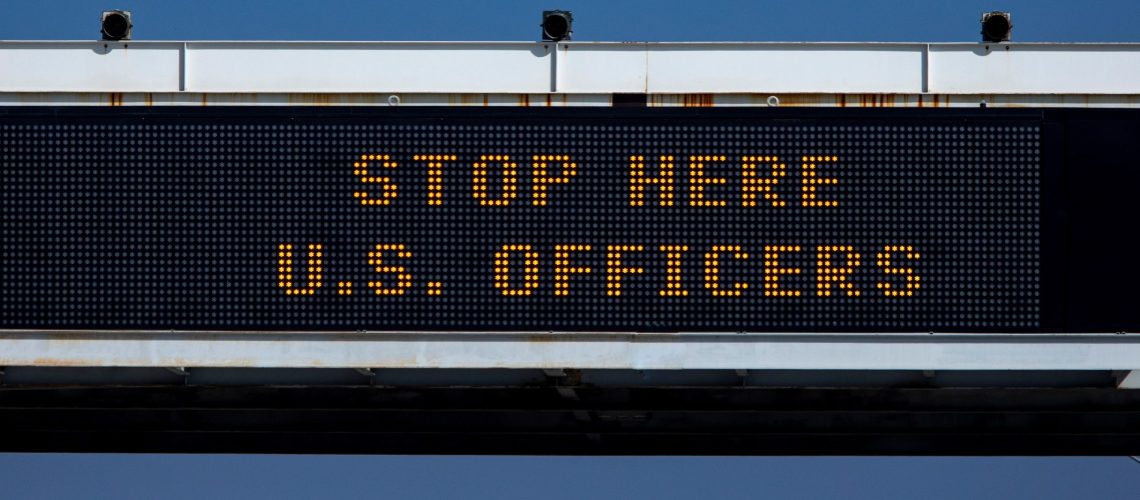Handling Border Patrol & Checkpoint DUIs in San Diego
DUI arrests that begin at Border Patrol stations and sobriety checkpoints in San Diego are more complex than standard traffic stops. These cases often involve additional legal issues, jurisdictional confusion, and serious consequences if not handled correctly. With major checkpoints operating near San Ysidro, Otay Mesa, Campo, and Temecula, many drivers find themselves facing DUI charges after being briefly detained by Border Patrol agents or stopped during a checkpoint operation.
This guide explains how these arrests happen, what to expect, and how an experienced DUI defense strategy can protect your rights, your driving privileges, and your future.
Why DUI Arrests Occur at Border Patrol and Sobriety Checkpoints
Border Patrol agents are primarily focused on immigration enforcement and border security. However, they can detain drivers who appear impaired and then contact local law enforcement, usually the California Highway Patrol or San Diego County Sheriff’s Department, to conduct a DUI investigation and make the formal arrest.
Common reasons a checkpoint DUI investigation begins include:
- Odor of alcohol during brief interaction
- Slurred speech or red eyes
- Alcohol admission by the driver
- Poor performance on field sobriety tests
- Preliminary breath test over 0.08 percent
Even though Border Patrol may detain the driver, these cases are prosecuted under California DUI laws in San Diego County criminal courts.
Legal Issues Unique to Border Checkpoint DUI Cases
DUI arrests that begin with Border Patrol contact often involve legal complexities that may not arise in typical DUI stops. Areas that must be carefully reviewed include:
- Whether officers had lawful reasonable suspicion or probable cause to begin a DUI investigation
- Whether the detention exceeded lawful time limits before transfer to law enforcement
- Whether field sobriety tests were conducted appropriately in a safe and fair environment
- Whether constitutional rights were violated during questioning or detention
- Whether there were language barrier issues affecting consent or instructions
These procedural and constitutional issues can be used to challenge the legality of the arrest and the admissibility of evidence in court.
Immigration Concerns for Non-Citizens
San Diego’s proximity to the border means many checkpoint DUI arrests involve non-U.S. citizens, lawful permanent residents, and visa holders. While a first-time misdemeanor DUI is not typically a deportable offense by itself, a conviction may still create immigration complications, including:
- Delays or denials in visa renewals
- Negative impact on citizenship applications
- Increased scrutiny in immigration proceedings
- Potential immigration holds in certain situations
Any non-citizen facing a DUI charge near the border must consider both criminal and immigration consequences when planning a defense strategy.
Refusing DUI Chemical Tests at Checkpoints
Before a lawful arrest, drivers over 21 who are not on DUI probation generally have the right to decline a preliminary alcohol screening (PAS) breath test at a checkpoint. However, once arrested, California’s implied consent law requires drivers to submit to a breath or blood test. Refusal after arrest can result in:
- Loss of driving privileges for one year or more
- Additional penalties in court
- Refusal allegations used as evidence of guilt
One of the key defense issues in these cases is whether officers properly advised the driver of their testing obligations and the consequences of refusal.
DMV Action After a Border Patrol DUI Arrest
A checkpoint DUI triggers two separate cases:
- DMV case – involving potential driver’s license suspension
- Criminal court case – involving DUI prosecution
The DMV will automatically suspend the driver’s license unless a hearing is requested within 10 days of arrest. Acting quickly is critical to preserving driving rights and building a defense.
Potential Defenses in Border Patrol DUI Cases
Effective DUI defense requires identifying weaknesses in the prosecution’s case and demanding proof on every legal and scientific issue. Common defenses include:
- Unlawful or prolonged detention at a checkpoint
- Flawed or unsafe checkpoint procedures
- Lack of reasonable suspicion or probable cause
- Inaccurate or improperly administered chemical testing
- Medical conditions or fatigue mistaken for impairment
- Rising blood alcohol levels at the time of testing
- Mishandled or contaminated blood samples
Every checkpoint case must begin with a full investigation of video evidence, reports, and testing records.
What to Do After a Checkpoint DUI Arrest
Anyone arrested for DUI at a Border Patrol or sobriety checkpoint in San Diego should take immediate action:
- Do not contact the arresting agency for information
- Do not discuss the case with anyone except a defense attorney
- Request a DMV hearing within 10 days to protect driving rights
- Begin building a defense strategy before the first court date
The next and most important step is to speak with an attorney who focuses exclusively on DUI defense. San Diego DUI Lawyer Rick Mueller is recognized for his extensive experience handling complex checkpoint and Border Patrol DUI cases across San Diego County.
For immediate guidance and a free consultation, contact Rick Mueller today. Acting quickly can make the difference between keeping your license and losing it.
Handling Border Patrol & Checkpoint DUIs in San Diego

